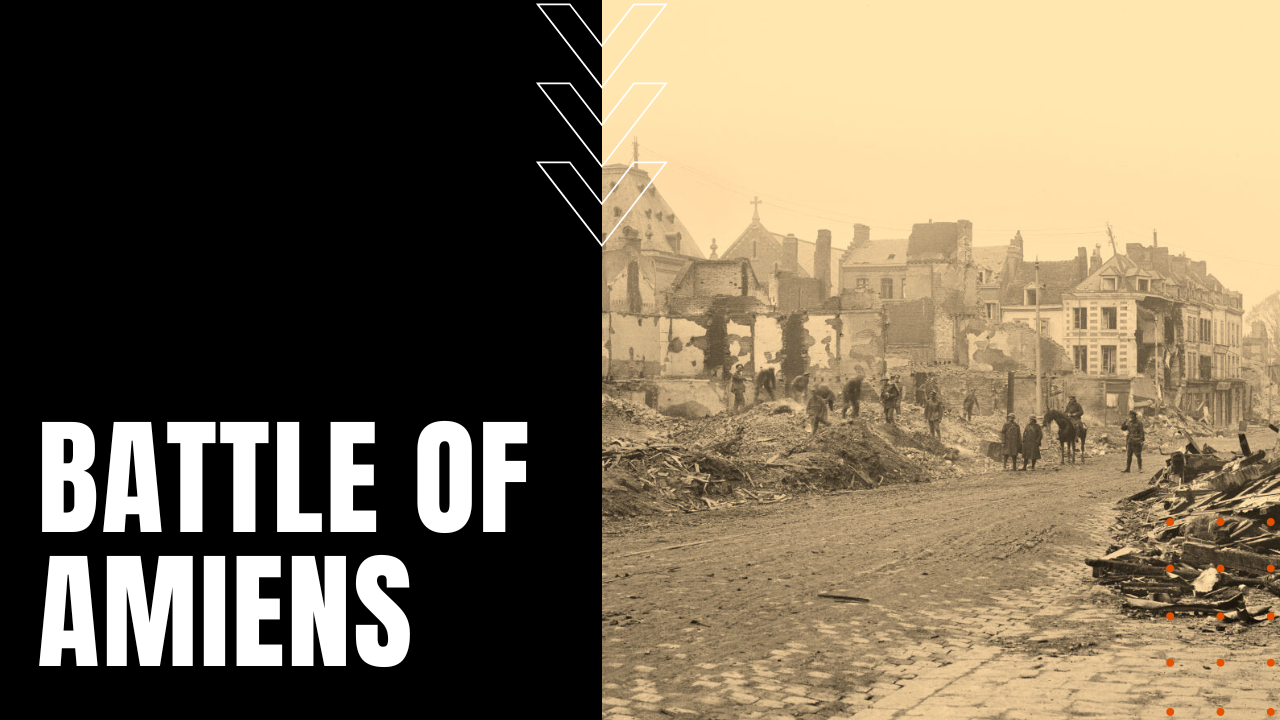The Battle of Amiens

Following egregious losses during the German’s spring offensive of 1918, surviving German fighting men were dogged by exhaustion, faltering morale, failing supply lines and the rapidly-spreading Spanish Flu pandemic of 1918, leading many German war leaders to speculate on Germany’s impending defeat after four bloody years of war.
Weaken German Supply Lines
The same speculation was felt on the Allied side as well, prompting Allied generalissimo Ferdinand Foch to reject a solitary decisive blow against the Germans, but rather a series of limited, rapid fire offensives intended to liberate vital rail lines around Paris, further weakening Germany’s supply lines to the Western Front.
Strategic Approval
At a July 24th conference of Allied army commanders, Foch’s strategy was agreed upon by Allied leaders, including John J. Pershing of the United States, Philippe Petain of France and Sir Douglas Haig of Great Britain. Known as the Battle of Amiens or the Third Battle of Picardy, the British attacked first on the morning of August 8th, 1918, near Amiens along the Somme River, where a force of 20,000 German soldiers defended a rail line between Mericourt and Hangest.
Overwhelming Allied Strength
Outnumbered six to one by British, Australian and Canadian troops, the Allies laid down a well-coordinated attack on German lines, employing some 400 tanks, 2,000 artillery pieces and over 800 aircraft. By the end of the day, the Allies had punched through 15 miles of Germany’s front line, witnessing 27,000 German casualties, while more than 12,000 exhausted and dispirited German soldiers surrendered their arms.
100 Days’ Offensive
While the Allies’ summer offensive—now known as the Hundred Days’ Offensive—failed to repeat the overwhelming success of its first day at Amiens, the battle would prove to be a turning point for Germany’s collapsing ability to wage war. Dubbed “the black day of the German army,” by German General Erich Ludendorff, Kaiser Wilhelm the 2nd told Ludendorff that “we have reached the limits of our capacity.”
A Lost Cause
While both men knew that, in the Kaiser’s own words, “the war must be ended,” he also agreed with Ludendorff that without continued progress on the battlefield, Germany would lose valuable bargaining room at any future or potential peace talks with the Allies, leading German soldiers to fight on amidst rising disorder and desertion at battle fronts, along with a growing rebellion back home, making the Battle of Amiens, a critical turning point in the final months of the First World War.
